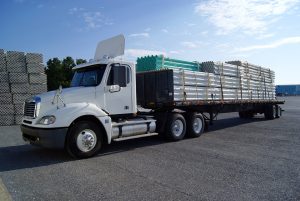And why does the W.A.L.S.H. Test matter for your small business?
The W.A.L.S.H. Test is an acronym that is used to determine jurisdiction for a Workers’ Compensation Insurance Claim when a claim occurs involving more than one state. Because workers comp systems are governed by the individual states, it is difficult for the legal system to legislate liability issues that involve more than one state. Where this is most common is when a businesses operates in multiple states. The W.A.L.S.H. Test applies to jurisdiction whenever a insurance claim occurs in a state other than the company’s primary headquarters. Its most common use is to determine how work comp coverage will apply to the jurisdiction of the case.
Walsh is an acronym judges use to determine jurisdiction for a workers’ compensation insurance claim. The acronym stands for:
• Worked
• Accident
• Lived
• Salaried
• Hired
The weight of each part of the jurisdiction depends on the position of the term in the acronym W.A.L.S.H. Worked carries the most importance and Hired has the least importance when considering jurisdiction. The higher on the list the higher the relevance in relation to jurisdiction.
 This comes in to play in a city, like Charlotte, NC for example. This city sits very close to the border between North and South Carolina. Many businesses frequently operate in both states. Other more complicated instances occur with trucking companies or in the airline industry where they operate nationwide. One hypothetical example is where a marketing associate lives in South Carolina. The marketing associate gets hired by ABC marketing company just across the border in North Carolina. The marketing associate has job responsibilities where he travels to clients in both North and South Carolina as well as travelling across the country periodically. ABC marketing company is headquartered in Colorado, which is where the marketing associate is salaried. The marketing associate goes to a conference in Seattle, Washington and gets in to a wreck in a rental car while at the conference.
This comes in to play in a city, like Charlotte, NC for example. This city sits very close to the border between North and South Carolina. Many businesses frequently operate in both states. Other more complicated instances occur with trucking companies or in the airline industry where they operate nationwide. One hypothetical example is where a marketing associate lives in South Carolina. The marketing associate gets hired by ABC marketing company just across the border in North Carolina. The marketing associate has job responsibilities where he travels to clients in both North and South Carolina as well as travelling across the country periodically. ABC marketing company is headquartered in Colorado, which is where the marketing associate is salaried. The marketing associate goes to a conference in Seattle, Washington and gets in to a wreck in a rental car while at the conference.
• Worked – Multiple states
• Accident – Washington
• Lived – South Carolina
• Salaried – Colorado
• Hired – North Carolina
In this instance Washington would probably have Jurisdiction. This is because the marketing associate works in many different states, so W would lose relevance. Where the Accident took place is next on the Walsh Test. The fact that the marketing associate Lived in South Carolina has less relevance to this case. So does the fact the associate was Salaried in Colorado or Hired in North Carolina.
Salaried and Hired are typically lowest on the totem pole because they have the least to do with the accident itself. The fact that an employee is Salaried in Colorado and was Hired in North Carolina does not have much to do with a workers’ compensation claim regarding a car Accident that took place in Washington.
Where the employee Worked and where the Accident took place have the highest relevance. This is because where the worker does business most of the time and where the accident took place have the most to do with this specific occurrence.
The one situation where the W.A.L.S.H. does not take effect is in monopolistic states. These states are North Dakota, Ohio, Washington and Wyoming. These monopolistic states require an employer to obtain workers compensation insurance from a compulsory state fund or qualify as a self-insurer. It is critically important to let your agent know everything your business is doing and especially where. This can allow your agent to provide the correct coverage to protect your business when an occurrence takes place in one of these monopolistic states.
So the W.A.L.S.H. Test is a tool judges use to determine jurisdiction in Workers’ Compensation Claims. It is relevant to businesses who operate across state lines. Where your employees do their work can make all the difference in your company being liable for a Workers Compensation Claim — and to determine if your policy will cover the claim. Talk long and honestly with your agent about where and how you do business, and make sure that you have a state listed in section 3A of your workers compensation policy if you have an employee that might get injured in another state.